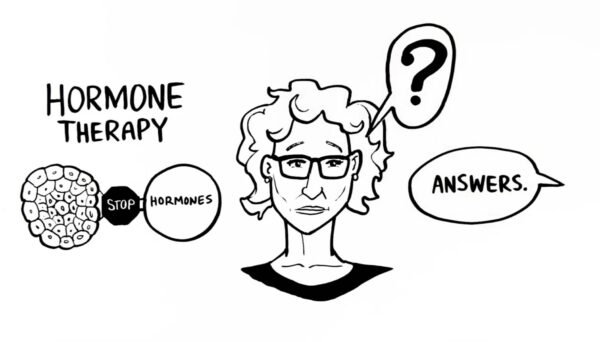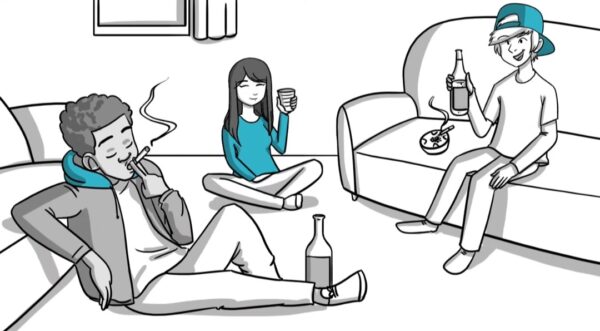After big natural disaster, we may feel a range of emotions including shock, disbelief, fear, anger, sadness and hopelessness. We may also feel physically exhausted and overwhelmed. Beside these people who have lost their homes, loved ones or possessions may feel a deep sense of loss and grief. It’s very common for people to experience psychological distress such as anxiety, depression and post-traumatic stress disorder (PTSD) after such events. Intensity and duration of these feelings can vary depending on the individual and the severity of the disaster and also change to depends on the mental support we get.
Natural disasters such as earthquakes, hurricanes, tsunamis and floods have caused significant loss of life, with some events resulting in tens of thousands of fatalities all around the world and as you know large-scale natural disasters still occur and their frequency and severity are expected to increase due to climate change.


What Are The Effects of Natural Disasters on Children And Family?
We are all affected, more or less, from a great disaster. After the disaster, some part of our life will not be easy. Some of us need financial support and some of us need mental support. Children are especially sensitive and need support. As parents, it should be our main goal to help our children regain their former health and joy. In this article, you will find advice on how your children and family can go through a disaster and how you can support each other in the family.
Here are some statistics for needs psychological support after disasters:
- Adults: Surveys have shown that up to 50% of adults who have experienced a natural disaster report symptoms of post-traumatic stress disorder (PTSD) or depression. But this can change widely depending on the individual and the severity of the disaster.
- Children: Children can also be significantly affected by natural disasters with some studies reporting rates of PTSD in children as high as 25%. Children may be particularly vulnerable to the emotional and behavioral impacts of disasters because of their limited ability to understand and process what has happened.
- Male-Female Differences: Research has shown that men and women can respond differently to natural disasters, with women often reporting higher levels of emotional distress. This may be because of a variety of factors, such as gender roles, societal expectations and differences in coping strategies.
Here are some additional details, examples and statistics related to children’s emotional responses to natural disasters:
- Emotional Responses: Children may experience a range of emotions following a natural disaster such as fear, anxiety, sadness, anger, confusion and guilt. For example, a child may feel afraid of future natural disasters, anxious about the safety of loved ones and sad about the loss of their home and possessions or confused about why the disaster happened.
- Behavioral Changes: Children may exhibit behavioral changes following a natural disaster such as difficulty sleeping, decreased appetite, regression to earlier developmental stages (such as bedwetting or thumb-sucking), increased clinginess and acting out.
- Impact on Mental Health: Natural disasters can have a lasting impact on children’s mental health increasing the risk of developing mental health conditions such as post-traumatic stress disorder (PTSD), depression and anxiety. For example, a study of Hurricane Katrina found that 15-20% of children affected by the disaster developed PTSD.
- Importance of Support: It is very helpful for caregivers and parents to provide support, stability and a sense of safety for children following a natural disaster. This can involve creating a routine, answering questions honestly and age-appropriately and seeking support from mental health professionals if needed.
Being aware of the potential emotional and behavioral impacts that natural disasters can have on children and to provide them with the support they need to recover and heal.
How should We Support Our Families and Children After a Natural Disaster?
- Listen and Validate Their Feelings: Allow your family and children to express their emotions and feelings and listen to what they have to say. Acknowledge their experiences and validate their feelings, saying things like “I can understand why you’re feeling sad” or “That must have been really scary for you.” This can help them feel heard and understood.
Example: After a natural disaster, a child may express feeling afraid. Parents can validate the child’s feelings by saying, “I know that you’re feeling scared right now and that’s okay. I’m here to keep you safe.”
- Maintain a Routine: Establishing a routine can provide a sense of stability and security and help your family and children feel more in control. This may include maintaining regular meal times, bedtimes and other daily activities.
Example: After a natural disaster, family may make a schedule for the day that includes meal times, playtime and quiet time for reading or rest.
- Be Honest and Age-Appropriate: When answering questions from your family and children be honest and provide age-appropriate answers. This can help them feel informed and reduce confusion and anxiety.
Example: After a natural disaster, a child may ask about their home. Parents can respond by saying, “Our home was damaged by the storm but we’re going to stay with grandma and grandpa until we can fix it.”
- Offer Comfort and Support: Provide physical comfort and support to your family and children, such as hugs, holding hands and spending time together.
Example: After a natural disaster, Parents may comfort their child by reading a story together or taking a walk outside.
- Seek Support: Encourage your family and children to seek support from friends, family and mental health professionals, if needed. You can also seek support for yourself, as well as support each other.
Example: After a natural disaster, family may seek support from a therapist who specializes in disaster recovery.
- Address any Concerns: Pay attention to any changes in your family and children’s behavior and address any concerns. This may include seeking support from a mental health professional if needed.
Example: After a natural disaster, children may start having trouble sleeping. Parents may address this concern by talking to the child about their feelings and seeking support from a pediatrician or mental health professional, if needed.
Approach your family and children with empathy, understanding and patience following a natural disaster and to recognize that everyone may respond differently. With time and support, most people are able to recover from the emotional impacts of a disaster.
Also you can find a critic about pediatrics and effective usage of them in below page, take a look:
How Should We prepare to After Disaster For Support Family?
- Emergency Supplies: Prepare a disaster supply kit with essentials such as non-perishable food (such as canned food, energy bars and dried fruits), clean drinking water, first aid supplies (such as bandages, antiseptic wipes and pain relievers), flashlights and extra batteries. Store the kit in an easily accessible location and consider keeping a smaller version in each car in case of evacuation.
- Communication Plan: Establish a plan for how family members will contact each other in the event of a disaster, such as designated meeting places or emergency phone numbers. Assign one person as the point of contact and make sure everyone has each other’s phone numbers and email addresses.
- Insurance: Review and understand your insurance coverage, including homeowners, health and car insurance, so you know what to expect in the aftermath of a disaster. Keep insurance documents in a secure, accessible location such as a waterproof and fireproof safe.
- Financial Planning: Keep important financial documents and records in a safe, secure location and have an emergency fund in place to help cover costs after a disaster. Consider setting up automatic bill payments to ensure that essential bills are paid even if you are unable to access your bank or financial accounts.
- Evacuation Plan: Develop a plan for how your family will evacuate in the event of a disaster, including designated routes and places to go. Make sure everyone knows the plan, including children and any elderly or disabled family members.
- Shelter: Consider alternative shelter options, like hotels or friends or family’s homes, in case your home becomes uninhabitable. Make a list of these options and keep it with your emergency supplies.
- Essential Items: Pack a “grab-and-go” bag with essential items such as important documents (such as identification, insurance and financial records), medications and a change of clothes. Store the bag in a readily accessible location in case of a sudden evacuation.
- Pets: Plan for the safety of your pets, including their food, water and any necessary medications. Make sure their collars and tags are up-to-date and consider creating a pet evacuation kit that includes a leash, carrier and a photo of your pet for identification purposes.
By preparing ahead of time, families can feel more secure and confident in their ability to respond to a disaster and recover quickly.



What is the Most Important Needs After a Disaster?
Here are most important needs after a disaster for your child and family:
- Access to safe shelter and clean water: After a disaster, many people may lose their homes or be displaced, making it crucial for them to have access to safe and secure shelter such as temporary housing, tents or emergency shelters. Additionally, clean water is necessary for drinking, cooking and hygiene to prevent the spread of waterborne illnesses.
- Medical care and first aid: After of a disaster people may suffer from injuries, illnesses or mental health problems. Rapid access to medical care and first aid can help to save lives and prevent further harm.
- Food and basic necessities: Food and basic necessities such as clothing, bedding and hygiene items are essential for people’s well-being and survival after a disaster.
- Communication and information: It can be difficult to know the status of friends and family members after a disaster, so communication and access to information is important. This may include setting up emergency communication systems, such as hotlines or websites, to help people reconnect with loved ones.
- Emotional support and mental health services: Disasters can be traumatic experiences that cause physical, emotional and mental stress. Access to emotional support and mental health services can help people cope with the aftermath of the disaster and begin to heal.
- Assistance in recovering and rebuilding personal property: Many people may lose their homes, personal belongings and other property after a disaster. Assistance in recovering and rebuilding these items is important for their physical and emotional well-being, as well as their ability to restart their lives.
- Financial assistance: Disasters can be expensive events and many people may struggle to cover the cost of recovery and rebuilding. Financial assistance from government agencies, non-profit organizations and other sources can help to alleviate the burden and make recovery possible.
- Coordination and support from emergency response agencies: Effective coordination and support from emergency response agencies, like the Red Cross, local police and fire departments and other organizations, is crucial for providing the resources and services that people need after a disaster. These agencies can help with shelter, food, medical care and other needs, as well as with recovery and rebuilding efforts.

